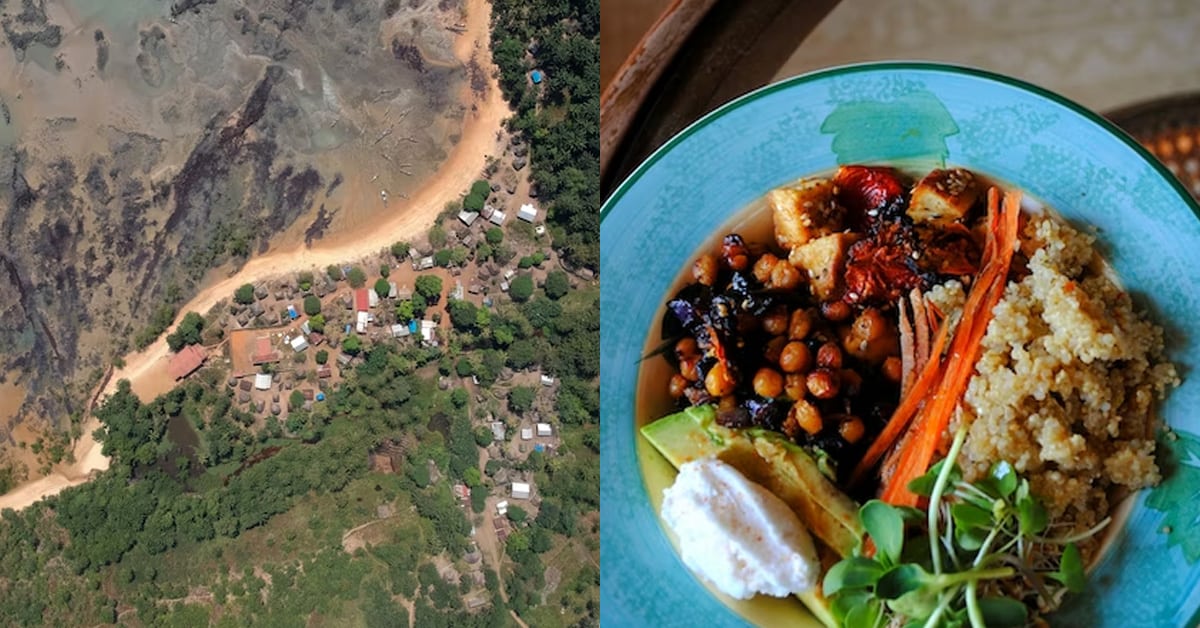Equatorial Guinea is a small country located in Central Africa, known for its rich cultural heritage and diverse cuisine. The country’s cuisine is a blend of African, Spanish, and Portuguese influences, resulting in a unique and flavorful culinary experience.
Equatorial Guinean food is characterized by its use of fresh ingredients, bold spices, and a variety of meats and seafood. The cuisine is heavily influenced by the country’s geography, with coastal regions featuring seafood dishes, while inland regions showcase more meat-based dishes.
Equatorial Guinean cuisine halal or not?
Is Equatorial Guinean food halal?
Equatorial Guinea is a predominantly Christian country, and while there is a Muslim minority, halal food may not be widely available.
It is recommended to inquire about the ingredients and preparation methods used in specific dishes before consuming them.
What kind of food do Equatorial Guinean eat?
The cuisine of Equatorial Guinea is diverse, reflecting the country’s varied ethnic groups. Some popular dishes include:
- Fufu: A starchy dough made from cassava, plantains, or yams, often served with soup or stew.
- Sopa de Pescado: A fish soup made with vegetables, spices, and sometimes coconut milk.
- Akwadu: A dish made with smoked fish, cassava leaves, and palm oil.
- Plantains: A staple food in Equatorial Guinea, plantains are often boiled, fried, or mashed.
- Rice: Rice is a common side dish, often served with stews or sauces.
- Chicken or beef: These meats are often grilled or stewed and served with rice or plantains.
- Seafood: Equatorial Guinea is located on the coast, so seafood is a popular choice. Fish, shrimp, and crab are often grilled or fried.
- Vegetables: Okra, eggplant, and spinach are commonly used in stews and soups.
- Fruits: Mangoes, papayas, and bananas are popular fruits in Equatorial Guinea and are often eaten as snacks or desserts.
How can you tell if the food is halal in Equatorial Guinea?
In Equatorial Guinea, the majority of the population is Christian, and there is a small Muslim community. Therefore, finding halal food may be challenging.
However, some restaurants may offer halal options, and it is best to inquire with the staff or the restaurant owner about the halal status of the food.
Some supermarkets may have halal-certified products, and it is essential to check the labels for certification. It is also recommended to consult with the local Muslim community or Islamic organizations for guidance on finding halal food in Equatorial Guinea.
Is it hard to find halal food in Equatorial Guinea?
According to the US Department of State, it may be difficult to find halal food in Equatorial Guinea, especially outside of the capital city of Malabo.
The majority of the population in Equatorial Guinea is Christian, and there is a small Muslim community. Therefore, halal food options may be limited.
It is recommended that travelers bring their own halal food or contact local Muslim organizations for assistance.
Is Equatorial Guinean food healthy?
Equatorial Guinean cuisine is generally based on starchy foods such as cassava, plantains, and yams, as well as fish and meat. While some dishes may be high in calories and fat, there are also many healthy options available, such as grilled fish and vegetable stews.
As with any cuisine, it is important to balance your diet and choose a variety of foods to ensure you are getting all the necessary nutrients.
What is Equatorial Guinean food similar to?
Equatorial Guinean food is similar to other West African cuisines, such as Nigerian, Ghanaian, and Cameroonian cuisine. It also has some similarities to Spanish cuisine due to the country’s colonial history.
Steps to find halal food in Equatorial Guinea
Here are some tips to find halal food in Equatorial Guinea:
- Research halal food options in Equatorial Guinea: Start by researching online for halal food options in Equatorial Guinea. Check out local halal restaurants, supermarkets, and food stores that offer halal food products.
- Ask locals: Ask locals for recommendations on where to find halal food. They may be able to provide you with information on halal food options that are not listed online.
- Check food labels: When shopping for food, check the labels to ensure that the food is halal. Look for halal certification symbols on the packaging.
- Visit halal restaurants: Visit halal restaurants in Equatorial Guinea to enjoy halal food. You can find halal restaurants by searching online or asking locals for recommendations.
- Contact halal food suppliers: Contact halal food suppliers in Equatorial Guinea to inquire about their products. They may be able to provide you with a list of halal food products that they offer.
- Attend halal food events: Attend halal food events in Equatorial Guinea to learn more about halal food and to meet other people who are interested in halal food.
- Join halal food groups: Join halal food groups on social media to connect with other people who are interested in halal food. They may be able to provide you with information on where to find halal food in Equatorial Guinea.

